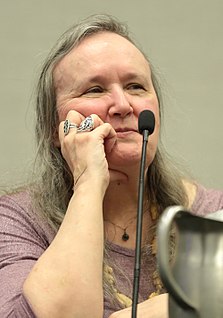A Quote by Mahatma Gandhi
An error can never become true however many times you repeat it. The truth can never be wrong, even if no one hears it.
Related Quotes
Error is a supposition that pleasure and pain, that intelligence, substance, life, are existent in matter. Error is neither Mind nor one of Mind's faculties. Error is the contradiction of Truth. Error is a belief without understanding. Error is unreal because untrue. It is that which stemma to be and is not. If error were true, its truth would be error, and we should have a self-evident absurdity -namely, erroneous truth. Thus we should continue to lose the standard of Truth.
It'd be nice to learn enough from each mistake that we'd be guaranteed to never repeat that same mistake twice. But, how many times have you said, 'I'll never do that again,' only to find yourself right back at it a few days later. Learning from our mistakes requires humility and a willingness to look for new strategies to become better.
Honor was never taking the easy way when it was also the wrong one. Never telling a falsehood unless the truth was painful and unnecessary, or a lie was necessary to save others. Never manipulating the truth to serve only yourself. Protecting the weak and helpless; standing fast even when fear made you weak. Keeping your word.
It is too often believed that a person in his progress towards perfection passes from error to truth; that when he passes on from one thought to another, he must necessarily reject the first. But no error can lead to truth. The soul passing through its different stages goes from truth to truth, and each stage is true; it goes from lower truth to higher truth.
There is a world of difference between facts and the truth. You can have so many facts that you don't deal with the truth. You never get to the truth. You have the places where, the people who, the times when, the reasons why, the methods how - blah blah. And never get to the human truth. The human truth is as elusive as the air. And as important as the air.
'In his celebrated book, 'On Liberty', the English philosopher John Stuart Mill argued that silencing an opinion is "a peculiar evil." If the opinion is right, we are robbed of the "opportunity of exchanging error for truth"; and if it's wrong, we are deprived of a deeper understanding of the truth in its "collision with error." If we know only our own side of the argument, we hardly know even that: it becomes stale, soon learned by rote, untested, a pallid and lifeless truth.'







































